Featured in the media.
Bruce Maginn featured on WRTV
Bruce Maginn featured on WRTV
Brad Clark featured on WRTV
Brad Clark featured on WRTV
Brad Clark featured on WRTV

'Feeling the Squeeze.' I Make $60K a Year, But Pay $3.5K a Month in Rent. I am Getting $100K From My Divorce and Am Considering Using It to Buy Land to Rent. Is That the Right Move?

Late to Investing? A Simple Catch-Up Plan That Actually Works


How The New Fed Rate Cut Will Affect You — Whether You're Buying A House, Retiring Or Just Paying Bills


Wages Aren't Keeping Up With Inflation: A Financial Adviser's Tips to Bridge the Gap
While we can’t control inflation, there are some simple things each of us can do to help keep our heads above water.



Fee-Only vs. Commission-Based Financial Advisors
Your advisor’s fee structure can have a major impact on the advice you receive.








6 Hidden Risks of Buying the Dip During Stock Market Drops
When the market takes a dip, many people rush to snatch up stocks that may be temporarily undervalued or simply lower priced.








5 Reasons You Should Assume You'll Live to 100 When Planning for Retirement
When you plan your retirement, you’d probably rather think about which vacations to budget for than how long you’ll live.


7 Signs You're Not Ready to Retire
Don’t let premature retirement derail your well-laid plans.


Credit Cards to HELOCs: Smart Strategy or Just Delay?
In today’s high-cost environment, consumer are increasingly turning to credit cards to get by.



How the National Debt Affects Your Investments
Rising federal budget deficits and national debt could eat into investors’ returns.



What is Regulation Best Interest (Reg BI)?
Regulation Best Interest, or Reg BI, is a series of rules from the Securities and Exchange Commission (SEC) that govern how broker-dealers and financial advisors must treat their customers.


Retiring Early? Prepare for Higher Healthcare Premiums.
If you are retiring early and expect to buy health insurance on the Affordable Care Act marketplace, brace yourself for higher premiums.



3 Key Factors Financial Advisors Use to Build Your Plan
Risk tolerance, time horizon, and goals are the foundational pieces of financial plans.


What It Takes to Be Wealthy in America: $3.2 Million, Charles Schwab Says
Americans now believe it takes an average of $2.3 million to be considered wealthy.



Medical Costs in Retirement: Do You Know What to Expect?
Plan for health care costs now so unexpected expenses don’t derail your retirement.




3 Reasons to Pursue Credit Card Debt Forgiveness This June, According to Experts
Inflation may have cooled slightly over the last few months, but consumers still aren’t getting a break on their credit cards.


How to Turn Your Home Into Retirement Income Without Selling It
If you’ve been a homeowner for a while and built up considerable equity in your home, you can use this equity to generate needed retirement income without having to sell your home.


Smart Credit Card Moves to Make in a Recession
Reassessing your wallet can help you remain resilient when times get tough.




HELOCs vs. Home Equity Loans: Which Borrowing Option is More Affordable Now?
For most consumers, borrowing money right now is expensive.




What's Next for Home Equity Loan Rates? Here's What Experts Say
Home equity loan interest rates are down a bit compared to a year ago, largely thanks to the Federal Reserve’s late-2025 rate cuts.








No. 1 Investment Goal for Every Decade of Your Life
Investment goals rarely remain stagnant.



What Trump's Tariffs Mean for Mortgage Rates
Last Week, after President Donald Trump’s introduction of his “Liberation Day” tariffs, the global and U.S. stock markets took a major hit, as Wall Street slumped and the U.S. dollar dipped.



Is Your 401(k) Affected By Trump's Tariffs? Here's What to Know and What You Should Do
The U.S. and global stock markets have been hit hard since President Donald Trump announced his latest tariffs on April 2.








Should You Buy Stocks in an Economic Downturn? Expert Explain
An economic downturn or recession begins when the economy experiences a significant decline in typical activity, such as employment, production, income and a few other signs, according to the National Bureau of Economic Research. These factors must persist beyond just a few months.



Nearly One-Third of American Adults Now Trust Social Media for Financial Advice: Why That's a Terrible Idea
Nearly one-third of American adults (30 percent) who looked for financial advice in 2023 turned to social media, according to Bankrate’s Financial Security Survey.








Avoid Lifestyle Creep — How to Keep Spending Under Control as You Earn More Money










